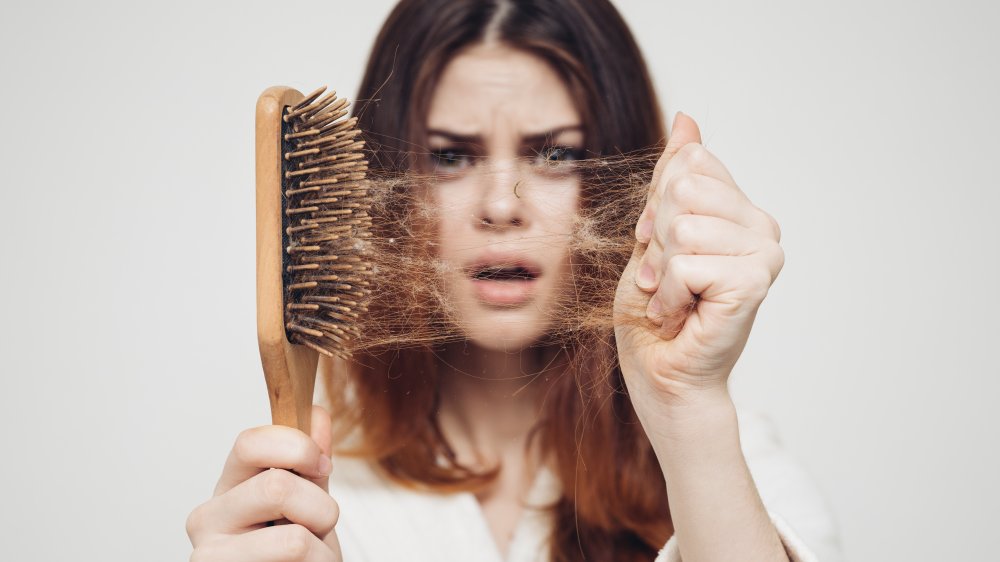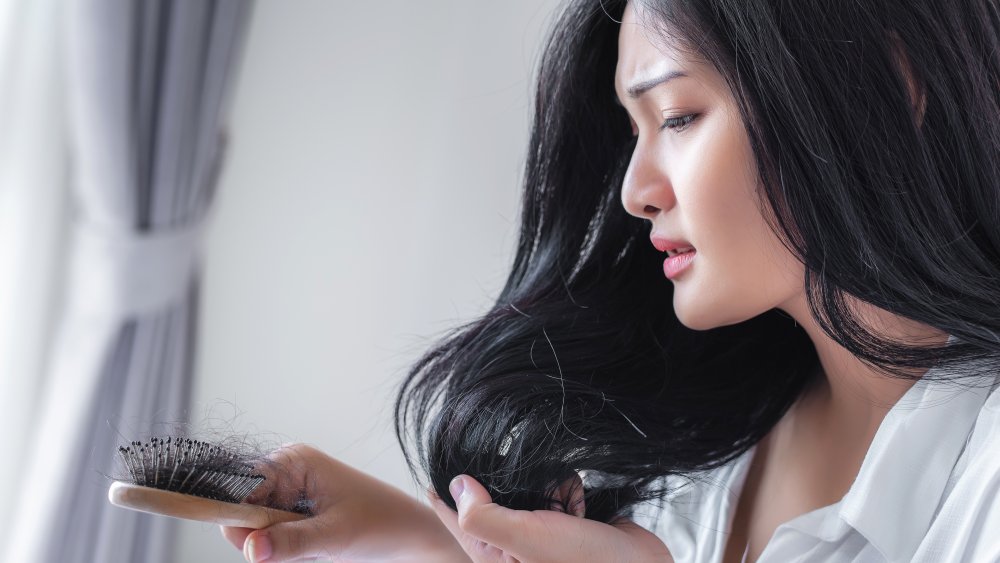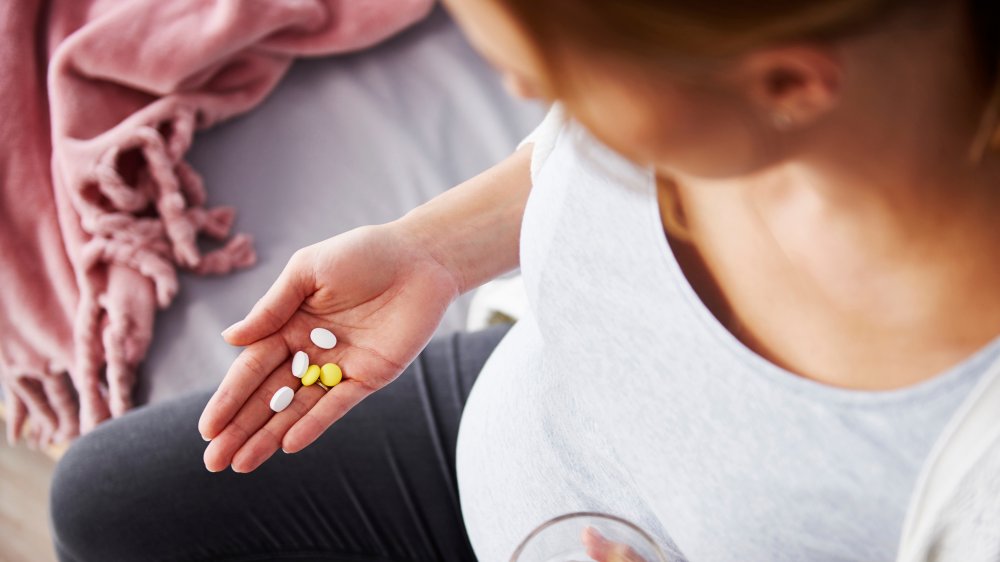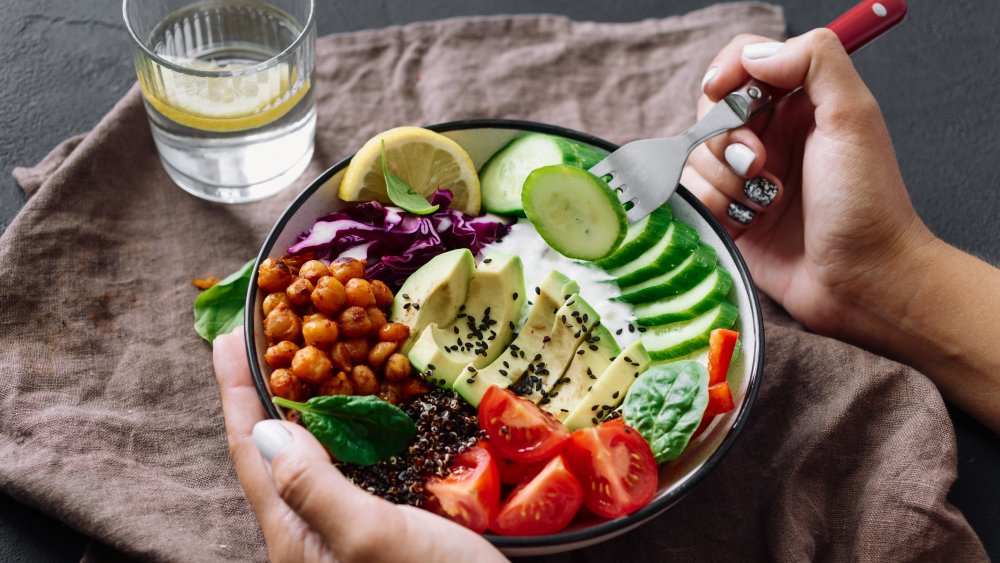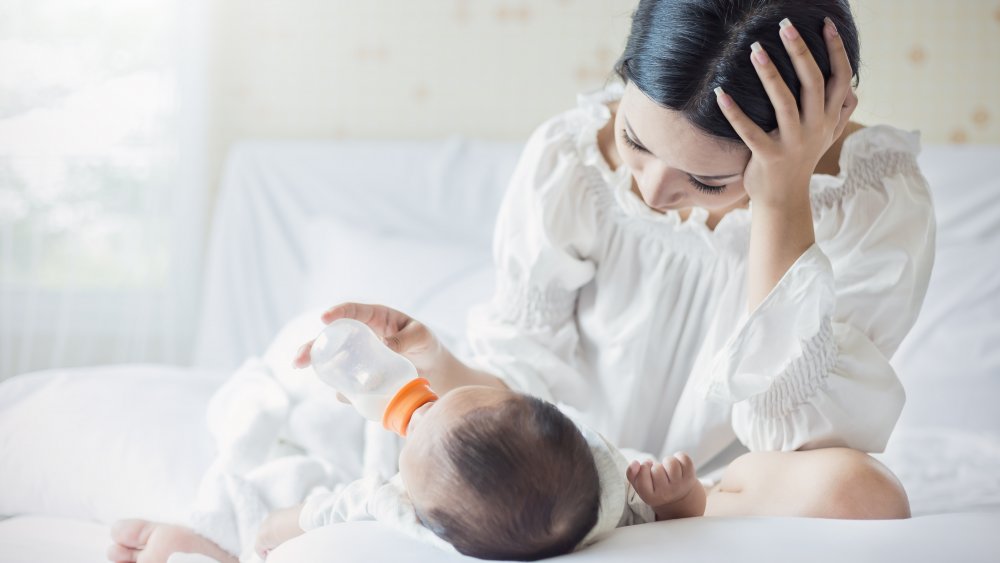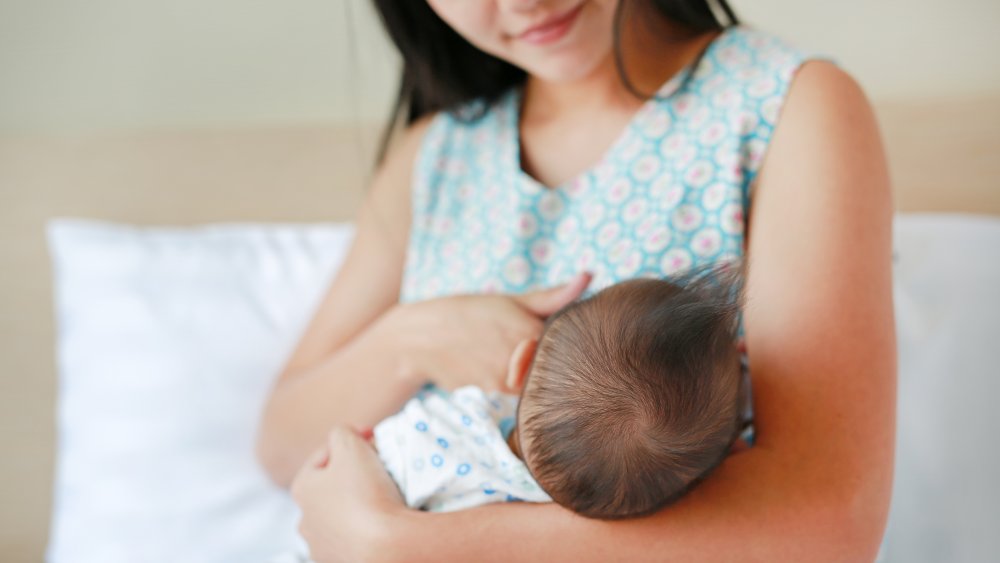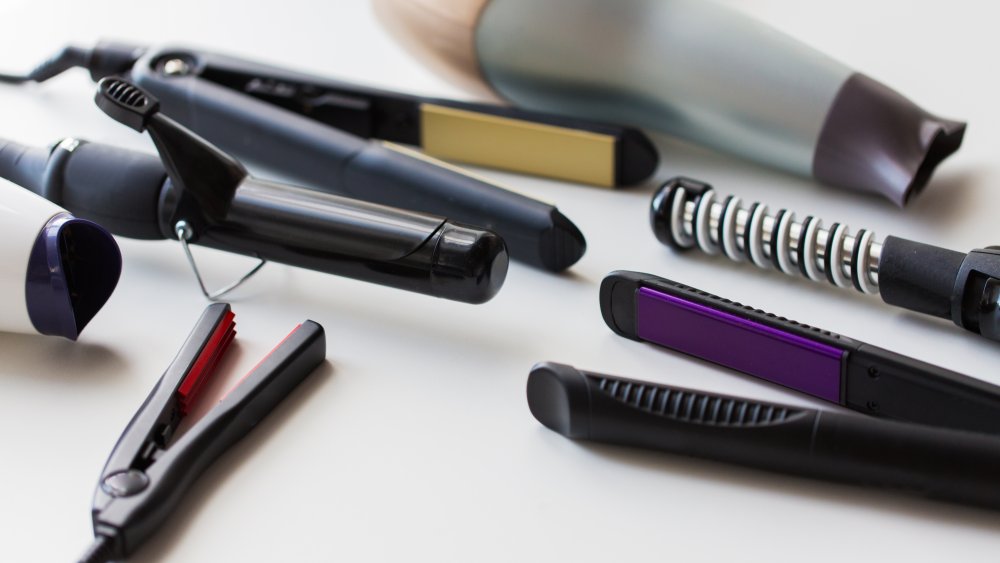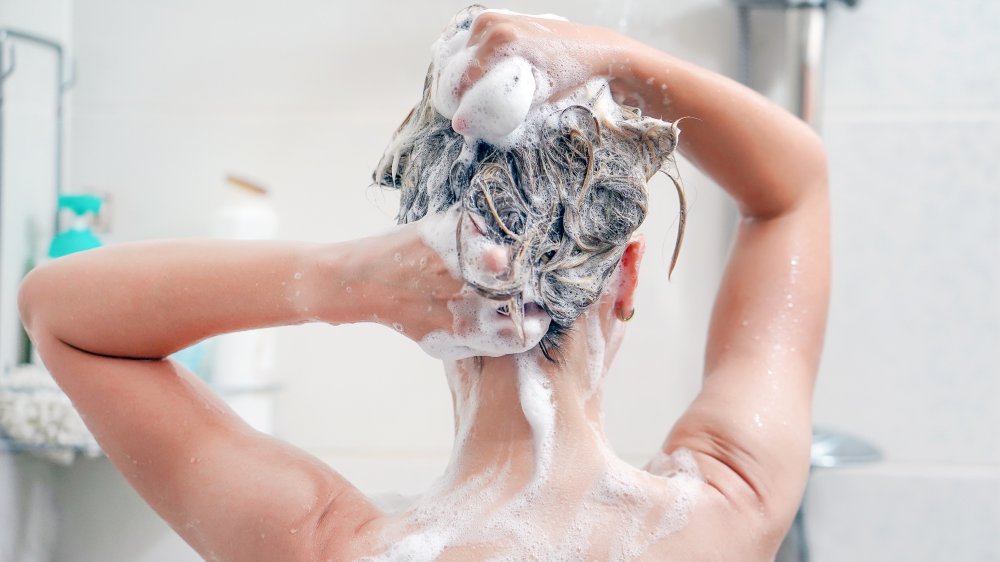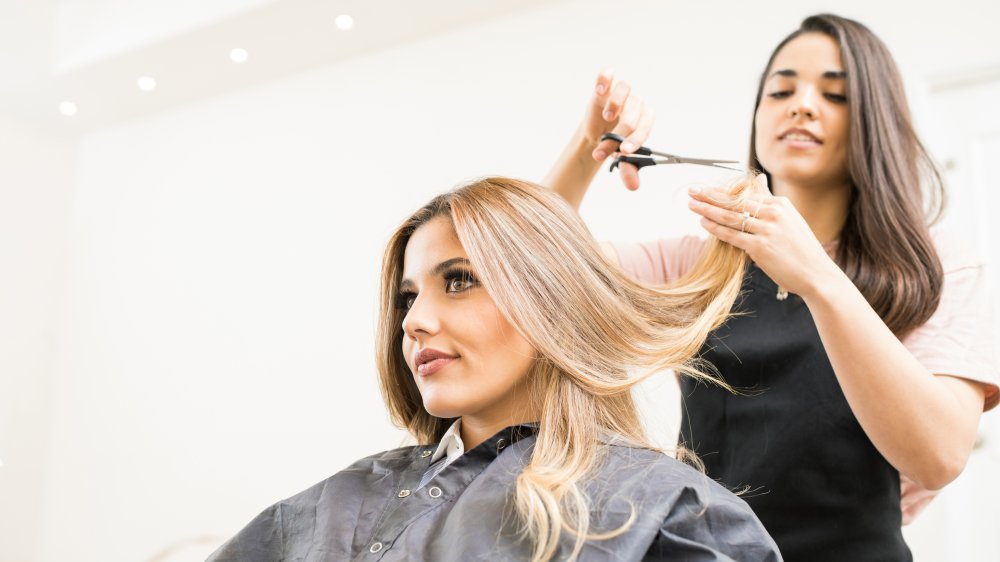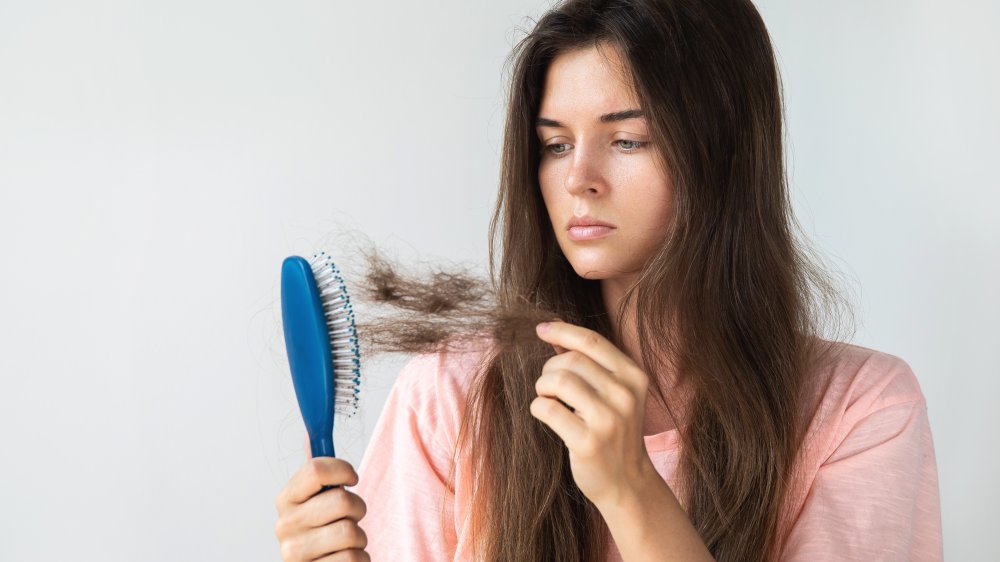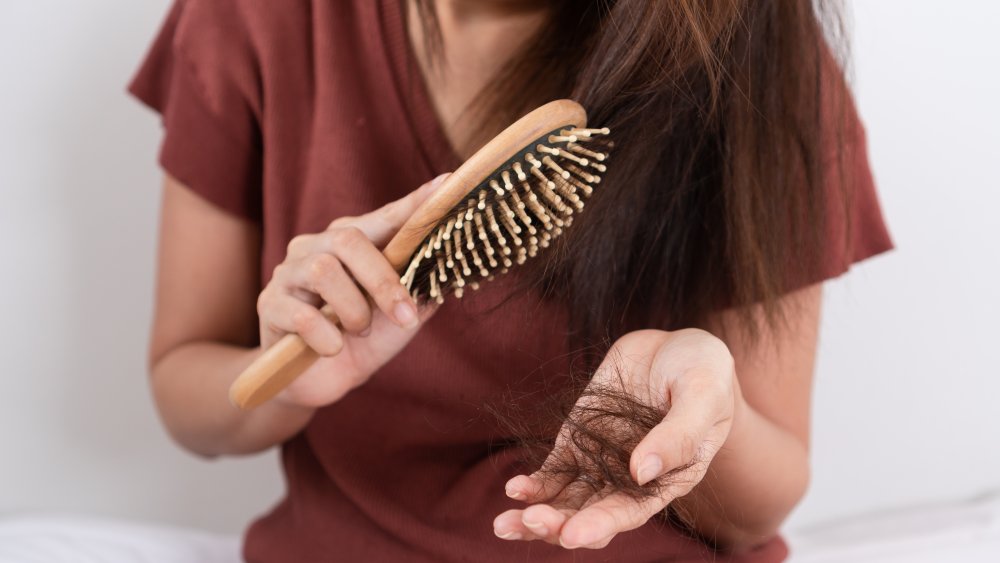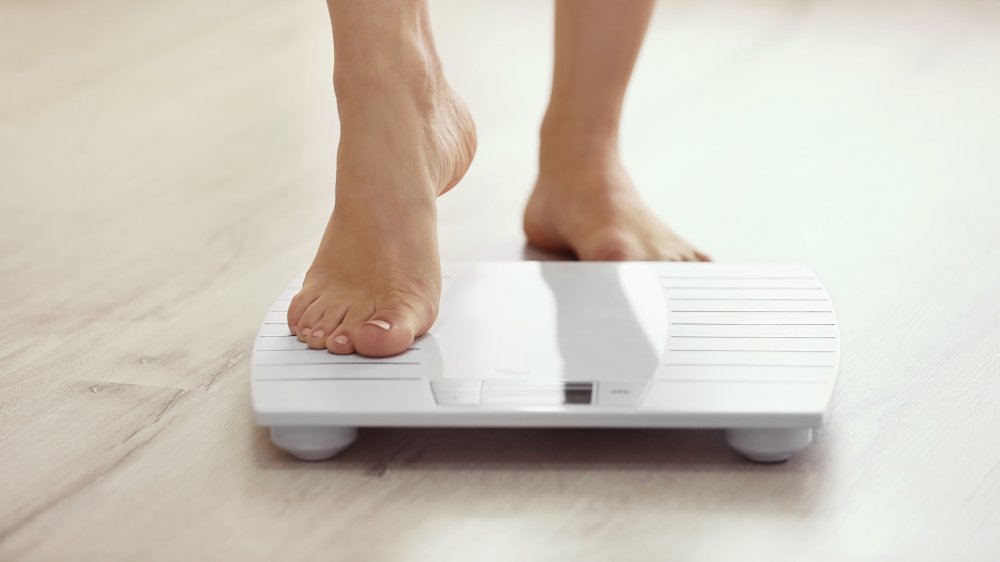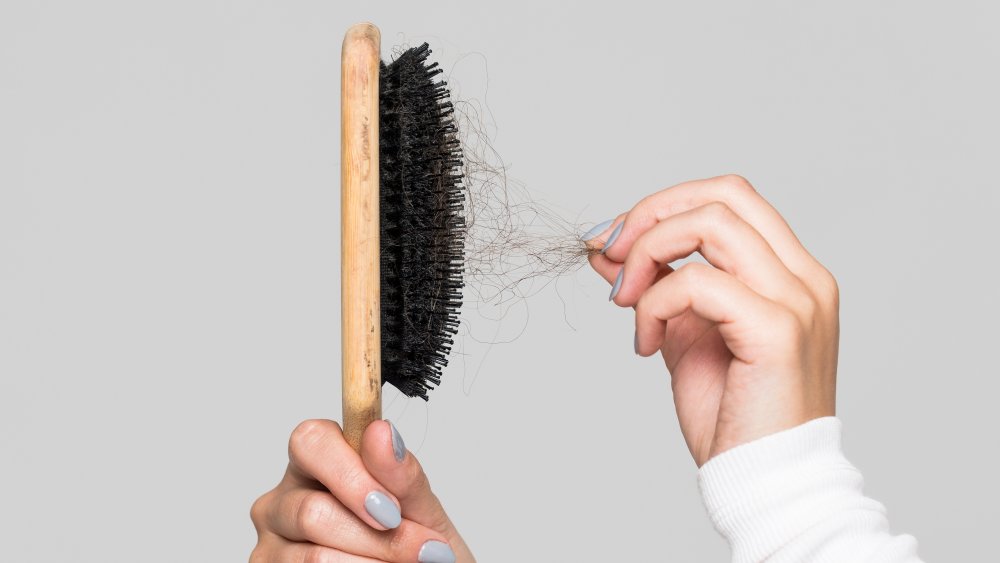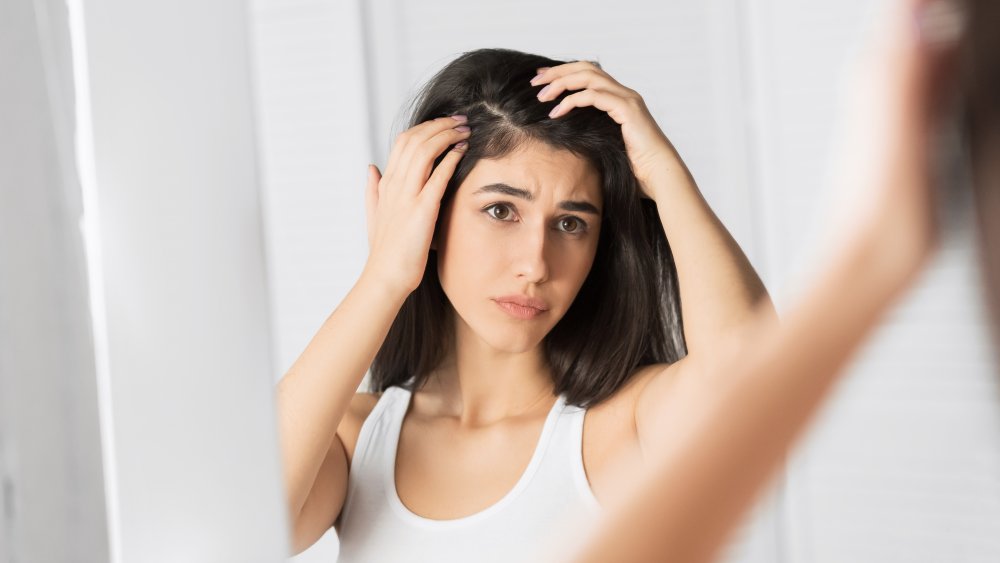The Real Reason Why You Lose All Your Hair After Giving Birth
As if the early days of motherhood aren't hard enough, there are a whole slew of afflictions to contend with after giving birth — and hair loss can be a majorly unpleasant and disheartening one.
In reality, this perpetual shedding isn't a problem that's exclusive to new moms. In fact, the American Academy of Dermatology Association confirms that the average person will lose approximately 50 to 100 strands of hair each day. It often is more pronounced after the birth of a child, though — especially if your mama-to-be mane was extra lustrous, thick, and shiny during those nine glamorous months of pregnancy. Indeed, the sudden thinning of your precious locks can feel downright traumatic amidst an already stressful and emotional period of time, as noted by HuffPost.
Yes, hormones will do a number on you and put you through lots of highs and lows in pregnancy and beyond. But there is good news: It is temporary, with most women reporting a cease to the shedding after about six months, according to Parents. And in the meantime, there are ways you can try to minimize the loss, while maximizing the locks you do have. Here is the real reason you lose your hair after giving birth — and a few tips to show your tresses some extra care.
If you lose your hair after giving birth, you can blame your hormones
Sorry to sound wholly unscientific, but the reality is that your hormones will go crazy during pregnancy. Those fluctuating levels of estrogen and progesterone affect everything from your complexion to the movement of your ligaments, according to Healthline.
Everybody loses hair each day, but when you are pregnant, a change in hormonal levels puts a halt to your typical daily hair loss, as explained by Parents. Once your baby is born and your hormones return to a relative state of normalcy, your hair will essentially play a game of catch-up. So, you might notice that for a period of time after giving birth you will lose a significant amount of hair, but, really, it is equivalent to the amount you would have lost over the previous nine months had you not been pregnant. Of course, this does not help decrease the level of shock or dismay you may feel when you see strands coming out by the fistful.
Skipping your daily prenatal vitamin could cause more postpartum hair loss
Many women find that, during pregnancy, their mane is mega-shiny and thick. This is partially due to the temporary pause in hair loss, but it also has a lot to do with the good-for-you nutrients packed into those prenatal vitamins you take every day. As noted by InStyle, most prenatal vitamins are loaded with folic acid, which promotes the generation of cells, including your hair — and your nails, too, FYI, which is why you might be sporting daggers. So continuing to take these pills after giving birth can help stave off hair loss. Additionally, per Mayo Clinic, many doctors recommend that postpartum women continue taking them, particularly if they are nursing.
It should be noted that many women who aren't pregnant and haven't recently had a baby take prenatal vitamins for these supposed benefits, too. However, as noted by InStyle, the extra iron and calcium can have some unpleasant side effects for those who don't need it. "Taking care to eat a balanced diet, drink plenty of water, limit caffeine and alcohol, and stay physically active is going to do much more for your health — including your hair and skin — than taking suped-up vitamins," Dr. Katherine A. Sauder, a professor of pediatric nutrition, told InStyle.
You could lose hair after giving birth if you're not eating a nutritious diet
Your daily diet can be restricted during pregnancy, so after your baby is born, you might want let loose and enjoy all the things you gave up during those nine long months. And with a newborn to tend to, it can be difficult to find the time to make healthy, well-rounded meals anyway. Still, maintaining a nutritious diet after giving birth is of the utmost importance for many reasons, not least of which is saving your postpartum tresses.
The good news? According to Healthline, there are many foods you can eat that promote hair growth. You will want to make sure you are choosing foods with "vitamins A, C, D and E, zinc, B vitamins, iron, biotin, protein and essential fatty acids," according to Healthline. Eggs boast protein and biotin, two of the key ingredients in the generation of hair. Berries, nuts, seeds, avocados, fatty fish, and meat are also great choices, per the site.
Stress can lead to hair loss after giving birth
What new mom doesn't feel stress and anxiety? Well, it turns out that this perpetual state of worry and woe can contribute to postpartum hair loss.
"Stress hormones, such as cortisol can have a negative impact on your hair cycle, compounding the hormonal changes after birth," noted Motherly. The site recommends that new moms take up a relaxing meditation practice or postnatal yoga routine, pending doctor approval, to help relieve anxiety.
Still, even if you are actively managing your day-to-day postpartum stress level, a one-time major event like birth itself can incite major hair loss. "Telogen effluvium is a form of temporary hair loss that usually happens after stress, a shock, or a traumatic event," according to Medical News Today, with postpartum telogen effluvium being a specific subcategory of this disorder. Again, taking steps to reduce your stress and manage your emotional state can help.
Can breastfeeding cause extended hair loss after giving birth?
The American Academy of Pediatrics recommends that a woman breastfeeds her baby exclusively — if possible — for approximately the first six months, and then continues to nurse while supplementing with additional foods through the rest of that first year of infancy. As noted by Medical News Today, the benefits of nursing are plentiful for a mom and her child, but there are a few potential downsides, too (can you say sleep deprivation?). While it has not been scientifically proven, many women suggest that the effects of hair loss after giving birth tend to align with the duration of their respective breastfeeding journeys, according to VeryWell Family.
But KellyMom, an evidence-based online destination dedicated to all things pregnancy and breastfeeding, says that there is no correlation between nursing and hair loss. Rather, the site explains that all postpartum women will experience some degree of hair loss — usually beginning around three months postpartum, and that it may last for six months up to a full year.
Keeping the same old hair care routine could lead to increased hair loss after giving birth
If you are experiencing hair loss after giving birth and you have been using the same old shampoo and conditioner for months, it might be the right to time to switch things up and try some new hair care products. In fact, there are a few key ingredients you will want to look for.
Andrew Fitzsimons, hairstylist to the stars, told Health that women should seek out products that boast volumizing and thickening properties. He suggested products that have ingredients such as keratin, biotin, and algae extract.
While there are no official studies to back this up, many women who have been through postpartum hair loss swear by collagen powder, as noted by Self. Additionally, ScaryMommy suggests finding a shampoo with Trioxidil, which is loaded with "bioactive ingredients that work simultaneously to help the hair look fuller and boost scalp health," or opting for 100 percent pure castor oil since it naturally "locks in moisture, boosts circulation and helps hair grow."
Using hot styling tools can cause postpartum hair breakage and loss
If you are shedding strands or clumps after giving birth, you should probably lay off the electronic styling tools for a while, as heat is another cause of hair loss, according to an interview with hairstylist Melanie Pellegrini in Harper's Bazaar. She elaborated that this styling ban should include "your hairdryer, curling wand and straighteners" because they all can dry out hair leading to potential breakage. Stylist Neil Moodie explained to the magazine that "when too much strong, dry heat is applied to the hair it will weaken the hair shaft and, at its worst, it can burn the hair off."
Of course, if you want to treat yourself (and your tresses!), there are a few styling tools that are made to reduce heat damage to the hair, including the Hai Sylkstyler with built-in "Damage Control Technology" to prevent breakage, as noted by New York Magazine.
Whether or not you decide to straighten or curl your hair, you should probably skip your next balayage appointment. The What to Expect editors suggest forgoing "chemically based treatments like highlights, perms and straightening sessions until the shedding stops."
Over-washing your hair could contribute to hair loss after giving birth
Most new moms do not have the time to take a lengthy shower or luxurious bubble bath every day of their exhausted existence. Fortunately, this lack of daily hygiene won't inhibit hair regrowth. In fact, the experts at What to Expect advise women to be "extra gentle" when experiencing postpartum hair loss to prevent "excess" shedding, elaborating that they should "shampoo only when necessary ... and use a good conditioner and a wide-toothed comb to minimize tangling."
Of course, they shouldn't rely exclusively on dry shampoo and the daily "mom top knot" hair style. Craig Taylor, creative director for hair care brand Hari, told Get the Gloss that new moms should try to wash their hair two or three times per week, noting that keeping the scalp stimulated and clean will help foster regrowth. "Don't wash your hair too much or too vigorously and don't go overboard on product — this will dry the hair out causing it to break easily and appear even thinner."
Maintaining the same hairstyle could make postpartum hair loss even worse
Ponytails are an easy go-to look for busy new moms, but this style might not be the best choice for those experiencing hair loss after giving birth. What to Expect suggests using loose scrunchies instead of constricting rubber bands and avoiding tight styles that pull at the hair and scalp.
New York City hairstylist Stephanie Scuoppo told Parents that a fresh professional cut can help with the transition period between hair loss and regrowth. She advises women to find a look that "will incorporate those fine hairs in the front," and embrace a shorter style that will "frame the face." Likewise, celebrity stylist Oribe shared that layers give a look of fullness despite possible hair loss. Furthermore, as noted by the magazine, "a side part can disguise thinning hair at the temples," while texture and volume can offer a little buoyancy and welcome flair.
Anemia could cause you to lose hair after giving birth
Many women suffer from an iron deficiency or even anemia after giving birth. In fact, most doctors will prescribe an iron supplement to help boost a woman's postpartum levels, according to the National Center for Biotechnology Information. So, it is arguable that a lack of iron could contribute to a new mom's excessive hair loss.
While the science is controversial, some studies have shown a connection between low iron levels and hair loss. According to WebMD, researcher Dr. Wilma Fowler Bergfeld found that "whatever the cause of hair loss — for both women and men — having too little iron in the blood makes it worse." Furthermore, treating them for iron deficiency regardless of the reason has been found to "maximize their ability to regrow hair," according to her colleague Dr. Leonid Benjamin Trost. "It is not the silver bullet for baldness, but it can definitely help maximize how a patient regrows hair."
An overactive or underactive thyroid can cause you to lose hair after giving birth
If you think that you are losing excess hair after giving birth, it might be time to talk to your doctor, as there could be an underlying health issue that needs to be addressed.
Hyperthyroidism and hypothyroidism, two conditions involving hormone production, can lead to hair loss, according to Healthline. More specifically, an overage or shortage of the T3 and T4 hormones can affect the production of new hair at the root, so, when hair falls out, it does not grow back in. Thyroid conditions and alopecia also often go hand in hand. This autoimmune response can lead to "patches of hair loss in discrete areas," as noted by Healthline, and can eventually lead to baldness. The site elaborates that there are other serious autoimmune diseases that can cause hair loss, as well, including lupus erythematosus and polycystic ovary syndrome. Additionally, alopecia areata is "when the immune system attacks the hair follicles, resulting in hair loss," as reported by Healthline.
Weight loss can lead to further hair loss after giving birth
Some women are eager to shed the extra baby weight they put on during pregnancy, and — when done in a gradual and smart way with a doctor's blessing — they can find success in their postpartum health journey. But if you have dropped a lot of weight very suddenly, this dramatic bodily change could potentially lead to some loss of hair. According to VeryWell Fit, a diet that is extremely low in calories does not give the body what it needs in terms of vitamins and nutrients to perform the way it is meant to, and this affects all sorts of functions and lots of different body parts — hair follicles included.
Still, the site confirmed that losing weight on its own should not result in extreme hair loss; however, it can compound the issue in tandem with other related causes, such as stress.
Genetics could be to blame for excessive postpartum hair loss
While postpartum hair loss tends to resolve itself for most women after six months to a year, as noted by KellyMom, it is possible that you could continue to shed strands well after your little one's first birthday. In fact, according to Today's Parent, losing hair after giving birth could signal more long-term genetic hair loss problems. David Salinger of the International Association of Trichologists told the site that postpartum hair loss can be the catalyst for hereditary female pattern baldness, and that, in this case, it can "become more pronounced with each pregnancy."
If significant shedding stops after the regular postpartum period, it doesn't necessarily mean you won't experience more in the near or distant future. When you have a family history of hair loss and experience moderate to major changes after giving birth, it could be a sign of more to come, according to Pregnancy Magazine.
Dandruff can cause further hair loss after giving birth
A change in hormones can affect the skin of your scalp and cause dryness and even dandruff, as noted by HuffPost. "Dandruff happens when the cycle of shedding old skin cells speeds up, leaving bits of dead, flaky skin on the scalp," per the site. Unfortunately, this unpleasant side effect does not always go away after giving birth, leaving some moms with dandruff and inevitable hair loss. (Isn't new motherhood so glamorous?) What's even more frustrating is that it is possible that excessive scratching of the head can further fuel the hair loss. Healthline reports that "this can injure your hair follicles."
Healthline advised avoiding harsh, drying haircare products and opting for a gentle moisturizing conditioner, and even massaging the scalp with coconut oil since it is hydrating and boasts "antifungal properties" that makes it act similar to "ketoconazole, a common ingredient in antidandruff shampoos." Healthline also suggested that people dealing with dandruff avoid products that could "irritate" the scalp, such as those with artificial fragrances and detergents.
